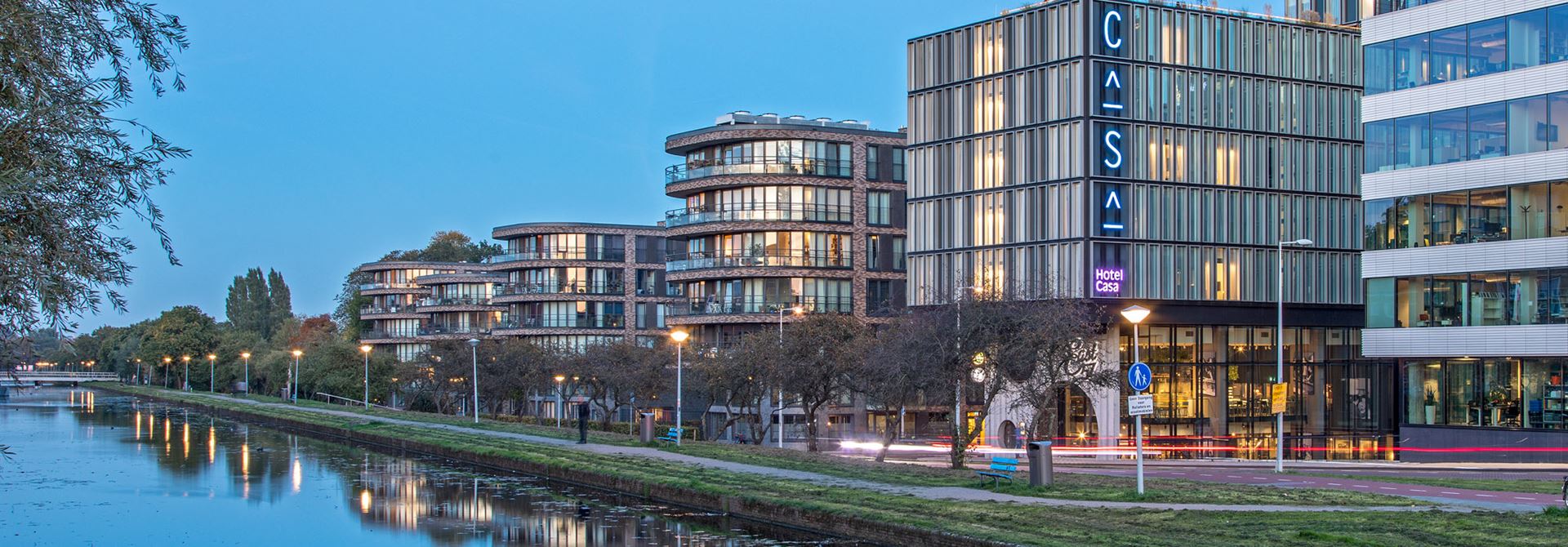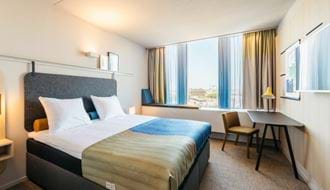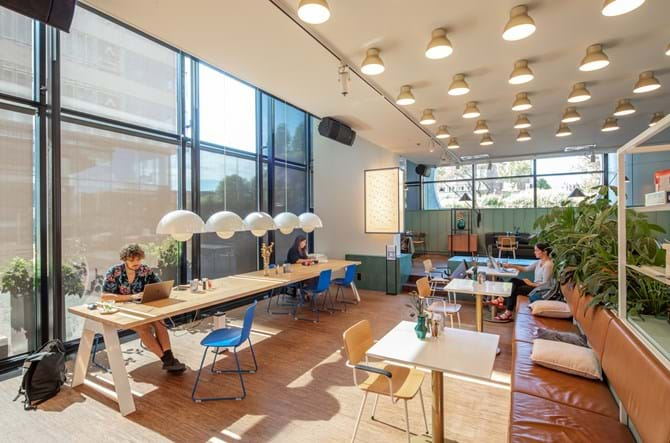
Hotel Casa in Amsterdam is normally open to regular hotel guests during the summer when the resident students leave or go on holiday. But the outbreak of the Covid-19 pandemic in March 2020 forced its management to adapt to a dramatically new situation as demand for hotel rooms dried up completely. Rising to the crisis, the operator developed a creative community management approach with the resident students staying on and helping to make a virtue out of necessity.
The idea four students had back in the 1950s to create Hotel Casa still stands out as brilliant today. In response to the huge demand for student housing at the time – which persists to this day - they developed what was then called Casa400, a mixed accommodation format where students who lived in the complex during the academic year made way in the summer for regular hotel guests. That strategy to maximise occupancy is still in place. Part of the Casa building is always in use as a hotel, and the additional income from the summer guests allows the operator to keep the student rooms at an affordable rental level during the academic year. But what happened when a global pandemic struck the Dutch capital, at the same time that a major refurbishment of the hotel was taking place? We spoke to community manager Fé la Porte and general manager Jeroen Diepeveen who said that 2020 produced numerous creative ideas despite being a very difficult year. And now social distancing restrictions have been eased in Amsterdam, it would appear that the worst is over.
Let us return for a moment to the role of community liaison. Why did Casa choose to create this position?
La Porte: “We realised communication between the students themselves and between the students and Casa was suboptimal. Many of these people are young and some of them come from abroad, so often this is their first experience of a big city and studying at a university or college.”
Diepeveen: “It can be difficult to feel at home in this new environment and loneliness is a risk. On some floors there was too little interaction between the students, which can lead to people making a nuisance of themselves or creating a mess, because there’s little sense of shared responsibility. That's why we said: let's try and create a more conducive environment, a community where people give and take.”
La Porte: “We managed to do that with all kinds of connecting events, as well as by creating the Casa pub, which is now a household name in Amsterdam. We offer an open stage where people can act or perform and discovered there’s so much talent in this building. The great thing about this is we provide the facilities; the students do all the organisation themselves.”
Diepeveen: “We also work with ‘buddies’ who show newcomers the ropes. Students get to know each other much better that way and have a great first experience of Amsterdam. They also share that experience with others and become ambassadors for Casa.”

Summer 2021 has already arrived. What are the prospects?
Diepeveen: “The past year was all about putting our heads down and surviving. But more and more is possible now, thank goodness. We can start using our roof terrace, which is a great additional venue. The restaurant is open again and so is the breakfast buffet. These are all hopeful and positive signs. The hotel’s bookings are rising as well, which is a good thing since we make most of our revenue in the summer. We are fully operational with 518 rooms that can be booked for a period of up to four months.”
La Porte: “I'm already working hard on the events for the autumn, and we continue to monitor closely what the government has to say and any changes in policy. The well-being of our hotel guests and our students remains our top priority.”


